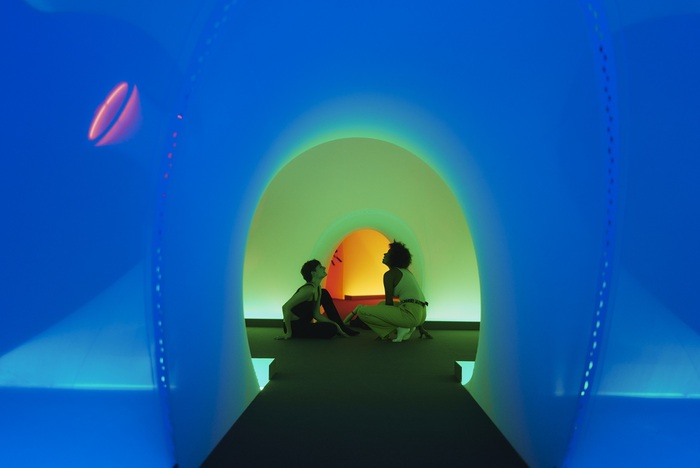DIEGO MIR
This year marks the 700th anniversary of the death of Dante Alighieri, undoubtedly the greatest poet of what we now call Europe, and one of the geniuses of verse of any age and culture.
And what is most important to the modern reader: a model of a free man.
If freedom is an attribute that we associate with poetry and poets, as well as one of the foundations of the myth of modernity, Dante's freedom leaves little consideration that we can make of what it is to be free in verse.
There are poets who do not specifically engage in a liberating search through poetry, but this is produced by default. This is not the case with Dante. In the
Divine Comedy,
the protean poem whose work has to be reduced due to economy and symbolic truthfulness —because it contains his other books—, the character Dante seeks freedom eagerly and eagerly, nothing less than outside the earth, in the subsoil - hell — and on high — on the mount of purgatory and in the heavens of paradise. But the freedom that Dante pursues is not exactly the same thing we now call "freedom." We can call it that, or, in less aggressive terminology for a medieval author, "God", that is, total knowledge (Dante, to the surprise of the times, can be read from atheism).
In the
Divine Comedy
Dante sets out on his red, green and blue journey to learn more, to know the ultimate realities that his quasi-Sartrian intellectual blinders have hidden from him.
Dante, who trusts everything to reason, contributes along the journey all the knowledge of his time, that of the profane sciences and that of the sacred sciences, complementary according to his conception, which includes the mystical experience, with the one that culminates the poem.
The three major issues of the Divine Comedy are evil, work and knowledge.
Each one corresponds to the three kingdoms beyond the grave and to the three human types that inhabit them: damned, penitent, and saved.
Hell is the realm where evil is punished and staged.
It is the most popular realm of the
Divine Comedy,
the one that everyone knows, since evil as an ontological entity is more ours, after the twentieth century, than good. Hell is spectacular, in the best and worst senses of the term. It has something of Cecil B. DeMille and his great masses, with moments of Stroheim and his portrait of the fall of the individual. There are monsters, but it is not fantastic literature, the strange Dantesque belongs to the marvelous medieval, which is divine work, not the fruit of morbid reason (that will come with modernity). The most astonishing fragment of the history of Western poetry is here: the melee encounter of Dante and his guide Virgil with Lucifer, clinging to whose black sows they crawl out of hell.
Purgatory, the green stage, as it happens in daylight and on the earth's surface, is a realm of work and effort.
It has something of a painful, almost happy phalanstery.
It is the place, as Virgilio says to Dante, where "one suffers but does not die."
The penitent-worker fights for his salvation, which is certain, since he achieved it on earth, he only has to perfect himself and climb the mountain.
The work is dignified, without exploitation or condemnation, although it does not reach the perfection of joy.
Paradise is the kingdom of knowledge, where the saved enjoy the unconditioned, that is, the unity of existence, and, to a certain extent, the undifferentiation with God (God must be seen as knowledge, the ultimate reality , the here without
counter
here
). It is a realm to discover for most readers, who judge it abstruse and do not feel called to mystical subtleties. But not only is it perhaps the most fascinating from a visual point of view, for its poetics of light and wisdom, but it is also where the Dantesque politics of the poetic, its constant management of reality, culminates in its entirety. Here Dante finally rules over the world and history, who had been judged in hell and in purgatory, and over himself, who at the beginning of the poem was a helpless chick, lost in the famous "dark forest", and now he is a full man who immerses himself in God. It is the kingdom in which the fascinating Beatrice, the earthly beloved, shines, without whom nothing would be possible for Dante, transfigured here into the ultimate, sapiential reality. It is in the last of the skies, the Empyrean,where the decisive verses are pronounced, which summarize the vicissitudes of the poem. Dante says to Beatriz: "As a servant you have made me a free man / by all the ways and means / that you have the power to serve yourself."
The greatness of the paradisiacal stage lies in the fact that with the ascent to the Ptolemaic skies, Dante transhumanizes himself (this neologism is one of the great lexical inventions of the poem, which has many).
This means that Dante leaves the human and enters the divine, where human reality is completed.
The poem, which is a sum of conquests of all kinds, is crowned with this fusion of man with the whole.
Today, 700 years after the last verse, we must look again, along with the hero's journey, the journey that Dante's own work has made through the centuries.
Like all the classics, Dante is looking for a definitive present time, not too subject to the needs of the moment, although we already know that this is a chimera, that tomorrow the wind will blow from another side.
Dante has endured too many relative actualities. The enlightened one, who despised him; the romantic, who adored and distorted him; the Victorian, who put it in formaldehyde; that of Pound's modernism, which made him a twentieth-century poet, above all because of the splendors of the form; the national one, still in force, since in Italy Dante is a totem, a protector of the tribe, more than Leonardo or Michelangelo, than Petrarca or Boccaccio, than Leopardi or Manzoni. But once the contaminations of the national-Catholic order were overcome, which inevitably stained it in atheist eyes; even surpassed, or in the process of doing so, the atheist paradigm, Dante can be read today in open and universal terms, as an expression of the search for a just political order and a spiritual order that completes the individual.
The great critic of everything, the exile who opted for the party of himself in the face of the bander war and who did not obtain the reward he dreamed of, that Florence would crown him a poet in the baptistery of San Giovanni, was always a determined visionary of the whole of the real, which is what makes the human being human.
Jorge Gimeno
is a poet.
His latest book is
Barca called Every
(Pre-Textos, 2021).
He has published a new translation and edition
of Dante Alighieri's
Divine Comedy
(Penguin Classics, 2021).

/cloudfront-eu-central-1.images.arcpublishing.com/prisa/ZCID5AFKFZEXXACL5I3YGPJ6DA.jpg)






